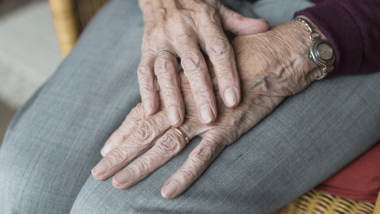A man who outlived two terminal illness diagnoses has written to The Daily Telegraph to warn against introducing assisted suicide to the UK.
Responding to ex-cricketer Ray Illingworth’s call to legalise assisted suicide, Michael Parry said he had been diagnosed with a similar condition to that of the former England captain 19 years ago.
Currently, attempts to remove end-of-life protections for the frail and sick are under way in Westminster and at Holyrood.
‘Incurable’
Following his diagnosis, Mr Parry said: “A consultant told me to get my affairs in order and take a good holiday, as I had six months to live.”
He explained: “I got a second opinion from America, had major surgery, and recovered. But six months later I was diagnosed with bone cancer, and was again told that it was incurable.
“I went back to America, where the diagnosis was reversed.”
Mr Parry concluded: “This was in 2002, 19 years ago. If assisted dying had been legal I might well have chosen it.”
Exploitation
Last month, over sixty members of the House of Lords spoke out against Baroness Meacher’s Assisted Dying Bill, which seeks to enable those deemed to have less than six months to live to get help to kill themselves.
As expected, her Bill will now move to Committee Stage, but it faces many more hurdles before it can become law. In 2015, a Bill to remove existing safeguards in England and Wales was soundly defeated in the House of Commons by 330 votes to 118.
Liam McArthur MSP is pressing ahead with his plan to legalise assisted suicide in Scotland, with a public consultation on his Bill due to close on 22 December. Two assisted suicide Bills have been defeated in the Scottish Parliament since 2010.
But his colleague, Pam Duncan-Glancy, has warned that weakening end of life protections is “a danger” to the vulnerable.
‘Assisted suicide Bill opens door to coercion’, palliative care experts warn
Peers speak out to oppose assisted suicide Bill
Labour Peer: ‘Even well-meaning assisted suicide activists are still wrong’
Senior doctor: Assisted suicide is ‘neither painless nor dignified’


